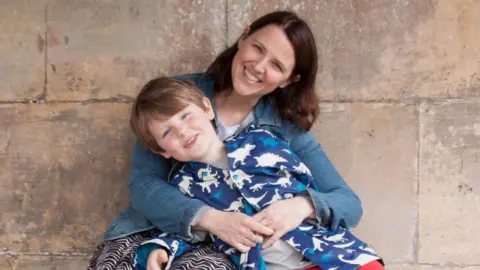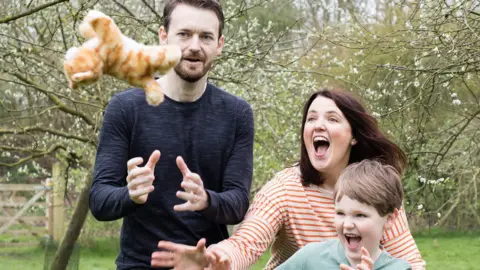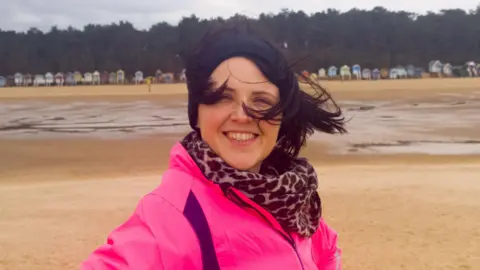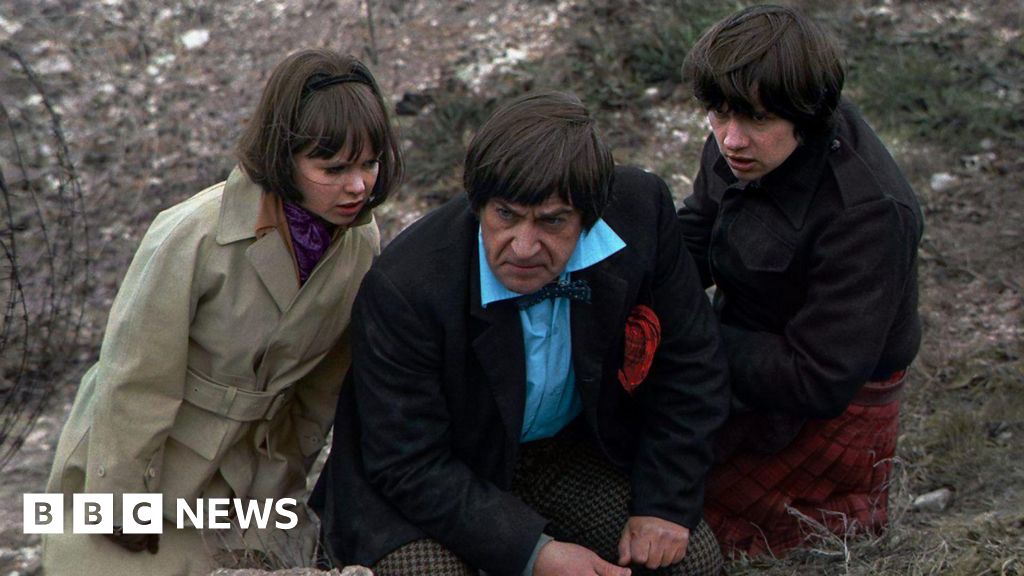
 Cliff Gibson
Cliff Gibson
Rachel Gibson was "a loving daughter, a wonderful mum to Sam, an amazing wife and loyal friend to so many", said her widower Cliff
The family of a doctor who died after she was given too much anaesthetic during an operation want an urgent national review of how the drug is given to patients.
Rachel Gibson, 47, went into cardiac arrest following a hip replacement surgery at Spire Lea Hospital in Cambridge on 12 April 2022. She sustained irreversible brain damage and died at Addenbrooke’s Hospital three months later.
In a prevention of future deaths report to the Royal College of Anaesthetists (RCOA), Cambridgeshire coroner Philip Barlow said there was "inconsistency" with the way local anaesthetic was measured, increasing the risk of mistakes.
Dr Gibson's husband, Cliff, 49, said it was a "national problem" and "we need to put pressure on the college to make changes".

 Alice Chapman Photography
Alice Chapman Photography
Dr Gibson died three months after she was given too much local anaesthetic during an operation
"It's easy to say I'm angry, that's everyone's first and obvious response, but I am baffled and bemused," said Mr Gibson, from Cottenham, Cambridgeshire.
He previously worked in the pharmaceutical industry on a project on drug safety and medical labelling and said he knew "how strict they are with everything".
"So to see how little or no documentation is needed with the administration of a local anaesthetic in surgery with a drug known to be toxic and to cause cardiac arrest - I find the whole thing baffling," he said.
"We now know that there are major problems with basic record keeping, training, handover notes and communication."
Mr Barlow asked the RCOA to examine existing practices and see if improvements could be made, after it was revealed similar practices to those which occurred in Dr Gibson's operation were used nationally.
Mr Gibson wants the college to issue guidance on this to its members, but also for the General Medical Council and the Care Quality Commission, who can mandate those changes, to work with the college to implement its guidance.

 Cliff Gibson
Cliff Gibson
Dr Gibson "trusted in the medical system and those in it more than anyone", according to her husband
Dr Gibson was an accomplished cancer scientist who "cared about the process and doing everything right for her patients at all times", her husband said.
He paid tribute to a woman who was "always smiling, always happy... and always there for her many friends".
She also took the lead in getting their autistic son Sam, now 13, the right educational support.
"He's now in a different place, in control of his emotions and been able to catch up on his education," said Mr Gibson.
"[But] still to this day struggles to talk about his mum and does not understand how she went in for what he was told was a simple operation and never came home.”
Dr Fiona Donald, the RCOA's president, previously said: "We send our condolences to the family of Dr Gibson for their loss.
"We have received the coroner's report and will examine this case in detail before responding by the 29 October.
"The RCOA is responsible for safeguarding standards in anaesthesia and we will do all we can to address the issues raised by the coroner to help prevent similar tragedies in future."

 3 months ago
23
3 months ago
23









